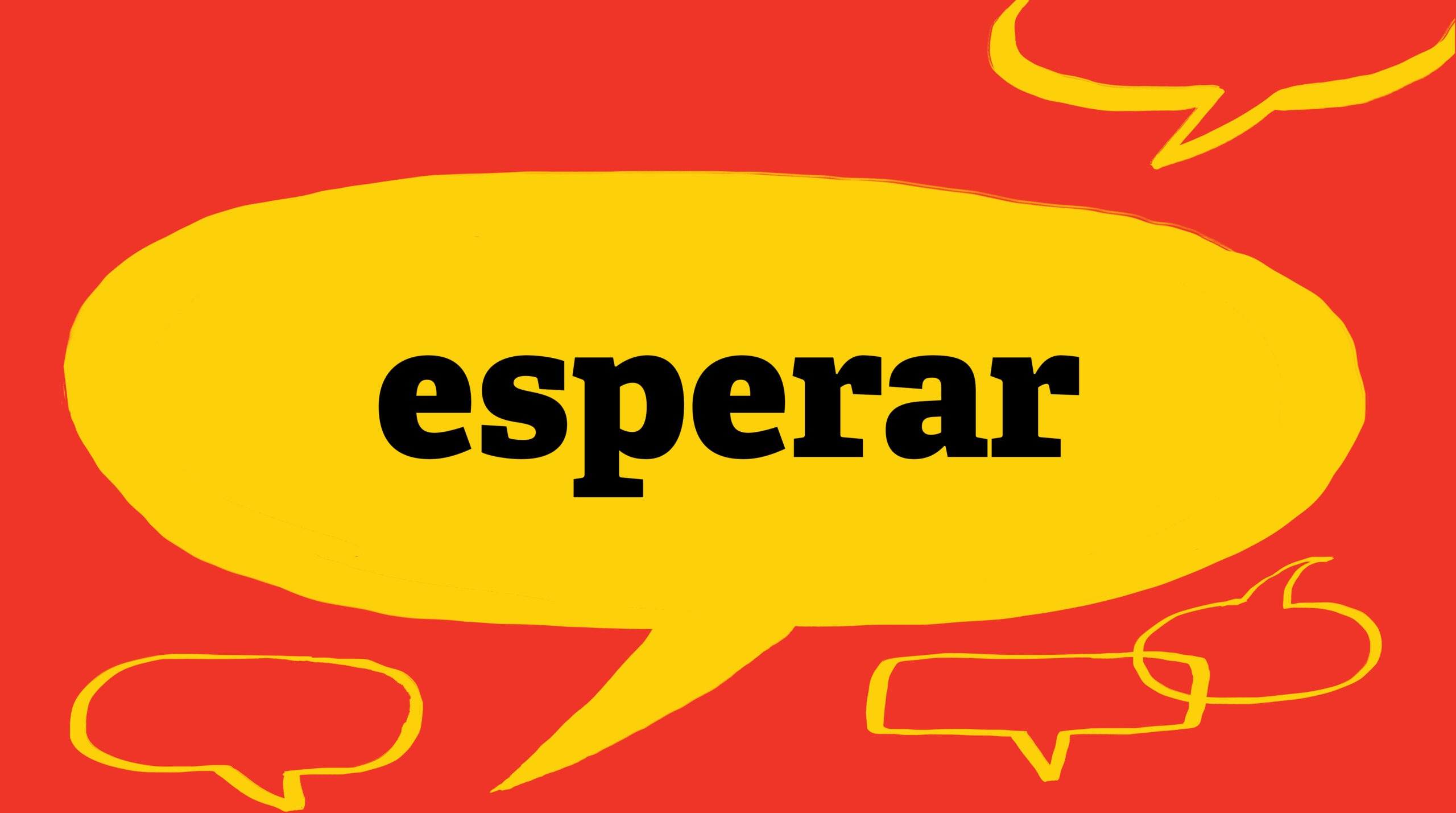This week’s Spanish word of the week is esperar.
Esperar is an verb that means to wait, to wait for; to expect; to hope and you can find out how to pronounce it here:
function playAudio(url) { new Audio(url).play(); }“You can’t always get what you want”, at least not immediately, and so you might have to wait for it. If so, you need the verb esperar.
Estamos esperando más noticias. We’re waiting for further news.
You can also use esperar with a grammatical object, in which case the translation is simply to wait:
Espere un momento, si es tan amable. Would you mind waiting a moment?
When you are waiting to do something, you use a between esperar and the following verb:
Estaba esperando a salir al escenario. I was waiting to go on stage.
But when you are waiting for someone else to do something, that is, expecting them to do something, the verb after esperar needs to go in the subjunctive:
Esperaban que les pidiera perdón. They were expecting him to apologize.
No esperaba que te comportases de ese modo. I wasn’t expecting you to behave like that.
When it means to hope, esperar is one of the classic cases of a Spanish verb which requires the subjunctive in the following clause:
Espero que le guste el regalo. I hope she likes the present.
Esperamos que no sea nada grave. We hope it’s nothing serious.
When the person doing the hoping and carrying out the action are the same, you don’t need to use the subjunctive. Instead, you use the infinitive:
¿Qué esperas lograr con eso? What do you hope to achieve by that?
Espera no llegar muy tarde. She hopes she won’t arrive very late.
(= She hopes and she won’t arrive late.)
Come back next week for another insight into Spanish vocabulary!



